
Kai Ling Kong, PhD, MS, discusses the results of a recent study revealing that music intervention can be used to prevent obesity in children.

Kai Ling Kong, PhD, MS, discusses the results of a recent study revealing that music intervention can be used to prevent obesity in children.

In a recent report, the American Academy of Pediatrics outlined how burnout affects pediatricians and what steps pediatricians can take to avoid burnout.

In a recent poll, only 1 in 5 parents believed it is unsafe for children to take medicine past its expiration date, while many did not know how to properly dispose medicine.

The Centers for Disease Control and Prevention released a Vital Signs report revealing that many children with sickle cell anemia do not receive stroke screening or necessary medication.
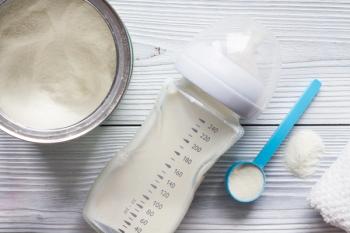
The US Food and Drug Administration recently outlined the risks and symptoms of Cronobacter infection in young infants, and how to reduce risk of infection.

At IDWeek 2022, Patrick LLoyd, DO, presented research showing antibiotics are often administered to pediatric patients at end of life, even in cases without infection.
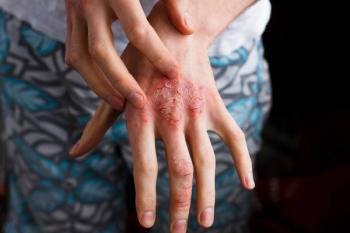
New 16-week data from the SPROUT trial show the PDE4 inhibitor may be highly efficacious in children and adolescents.

In a recent report, the Centers of Disease Control and Prevention outlined the rise in poor mental health and suicidal behaviors in adolescents throughout the COVID-19 pandemic.
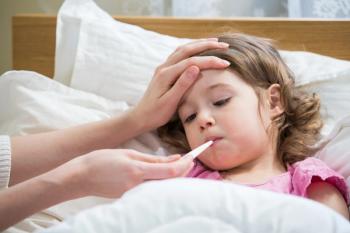
At IDWeek 2022, Taylor Wells, MD, gave a presentation on how long COVID affects the pediatric population.

A recent study in China reported increased risk of asthma after early-life exposure to particulate matter (PM), with smaller PM leading to a greater risk.

In a recent review, about 35% of participants reported experiencing online child sexual abuse.
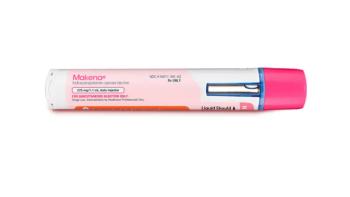
An advisory panel for the US Food and Drug Administration voted 14-1 to withdraw 17α-hydroxyprogesterone caproate (Makena; Covis Pharma) from the market.

First Candle’s “Let’s Talk Community Chats” program has launched with the goal of increasing safe sleep in infants to combat sudden unexpectant infant death (SUID).

In a recent study, life expectancy was lower for infants in Census tract areas with a low level of opportunity for children.

The American Academy of Pediatrics, American Medical Association, and Children’s Hospital Association wrote a letter to the Attorney General urging the investigation and prosecution of organizations and individuals threatening hospitals providing evidence-based gender-affirming care to pediatric patients.

Less severe cases of homozygous familial hypercholesterolemia often go undiagnosed and untreated, according to data presented at the AAP National Conference & Exhibition in Anaheim, California from October 7-11.

There is no evidence in the value of screening for depression in individuals aged 11 years and younger.
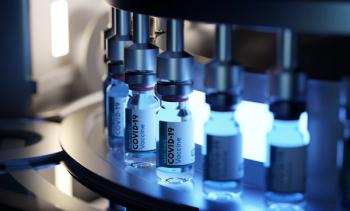
As COVID-19 continues to spread, vaccinations remain available to protect children from severe disease, hospitalization, and death.

An analysis of data from more than 9900 people with Down syndrome and 38,000 controls provides new insight into the apparent increase in risk of developing diabetes among children and young adults with Down syndrome.

Dr. Hyams, MD, discusses functional constipation in children and how positive results from a phase 3 trial on linaclotide will change treatment.

Hormonal implants are generally thought to be safe for bone, although whether a young adolescent would reach their genetically determined PBM while using a contraceptive implant is not known.

At the 2022 American Academy of Pediatrics National Conference & Exhibition, research was presented on which children are at high risk of severe COVID-19.

In a recent study, adolescents exposed to vaping prevention advertisements were less susceptible to vaping than those exposed to neutral videos discussing vaping.

Moderna has announced that their latest BA.4/BA.5 Omicron-targeting bivalent COVID-19 booster vaccine, mRNA-1273.222, has been granted Emergency Use Authorization by the US Food and Drug Administration.

Eagle Pharmaceuticals and Enalare Therapeutics have announced that their ENA-001 drug for the treatment of Apnea of Prematurity has been granted an Orphan Drug Designation by the US Food and Drug Administration.

In a recent study, trends of e-cigarette use among middle and high schoolers saw an increase in recent years.

In a recent study, pediatric patients with ADHD were less likely to be hospitalized from a mental disorder or need stimulant prescriptions when given general practitioner centered primary care.

At the American Academy of Pediatrics National Conference & Exhibition, Cassandra Padgett, MS, ACE health coach, discussed how telemedicine intervention effectively managed obesity in pediatric patients during the COVID-19 pandemic.

A recent study independently associated maternal obesity with ADHD risk in offspring, with a significant risk observed in joint obesity and excessive weight gain.